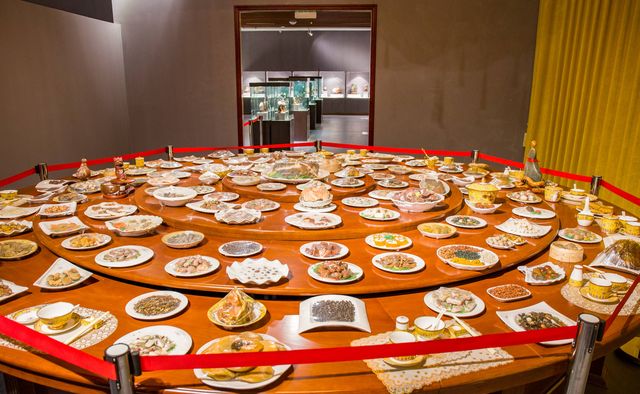
What is the meaning of Man Han Banquet
Manchu Banquet, a royal feast during the Qing Dynasty. It not only has the characteristics of palace dishes, but also has the essence of local flavor; it highlights the special flavor of Manchu and Han dishes, and barbecue, hot pot, and shabu-shabu are almost indispensable dishes. Both roasting and roasting are the treasure and the highest state of Chinese cuisine culture. The Manchu Banquet was originally a kind of banquet where Manchus and Han people sat together when banquets were held in the court of the Qing Dynasty. There are generally at least 108 kinds of dishes (54 southern dishes and 54 northern dishes) served at the Manchu-Han banquet, which are eaten in three days. The Man-Han Banquet dishes include salty and sweet, meat and vegetable dishes, with a wide range of ingredients, fine ingredients, and all-encompassing delicacies from mountains and seas.
The dishes of the Man-Han Banquet are exquisite, and the etiquette is exquisite, forming a unique and eye-catching style. Before entering the table, two pairs of incense, tea and hand dishes are served; there are four fresh fruits, four dried fruits, four candied fruits and four candied fruits on the table; after entering the table, first serve cold dishes, then hot fried vegetables, big vegetables, and beets in turn. The Man-Han Banquet is divided into six banquets, all named after the famous banquets of the Qing Palace. Gather many famous delicacies from Manchu and Han Dynasties, choose seasonal seafood, and search for rare and exotic animals. There are one hundred and ninety-six items of cold meat and hot food, one hundred and twenty-four items of snacks and tea, and three hundred and twenty items of delicacies. Use a full set of famille rose longevity tableware with silverware, rich and gorgeous, and the dining environment is elegant and solemn. During the banquet, famous teachers were specially invited to play ancient music to accompany the banquet. Following the elegant legacy, the etiquette was rigorous and solemn, and the traditional virtues were inherited. After eating the whole meal, you can appreciate the profoundness of Chinese cooking, the origin of food culture, and enjoy the supremacy of the spirit of all things.